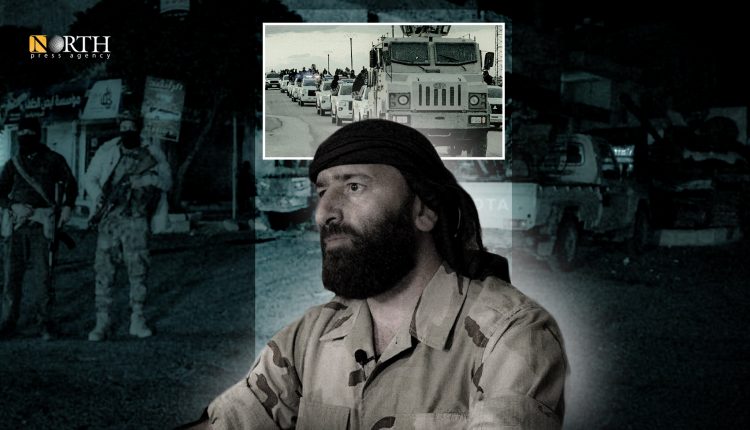By Kardo Roj
DAMASCUS, Syria (North Press) – The sudden dissolution of the Eighth Brigade, a major military formation in southern Syria, has sparked widespread speculation over the fate of its former leader, Ahmad al-Awda, long considered a pivotal figure in the region’s post-conflict landscape.
The Eighth Brigade, operating primarily in Daraa province, announced on April 13 that it was disbanding and placing its fighters and arms under the Ministry of Defense of the Transitional Government. Once hailed as a stabilizing force in southern Syria after the 2018 Russian-brokered reconciliation agreements, the group’s sudden departure leaves a critical vacuum at a time of persistent volatility.
Al-Awda’s Long Shadow
Ahmad al-Awda, a former rebel commander and key interlocutor with Russian forces during the southern reconciliation process, has remained notably silent since the brigade’s dissolution. Local sources in the city of Busra al-Sham, where al-Awda’s forces were headquartered, reported that he has retreated to his residence, avoiding public appearances amid rumors about his next moves.
The Eighth Brigade evolved from the “Shabab al-Sunna” faction established in 2012 and was integrated into the Russian-supported Fifth Corps following the 2018 settlement. While many former opposition groups struggled with fragmentation, al-Awda maintained a unique position of influence, leveraging his ties with Moscow and navigating the complex landscape of southern Syria’s security.
His unexpected withdrawal from Damascus last December, shortly after briefly joining operations in the capital, fueled speculation over possible disagreements with central authorities or concerns over his personal safety. Analysts believe that al-Awda’s deep access to sensitive security and political files during his time in Damascus turned him into a liability for some power centers.
“The Black Box”
Speaking to North Press, political analyst Haitham Saab described al-Awda as a “black box,” suggesting that his knowledge of critical state and security dynamics made his continued independence untenable.
“Al-Awda’s influence and the files he accessed made him a threat,” Saab said. “Neutralizing his role was necessary for consolidating Damascus’s control over the south.”
Saab noted that al-Awda’s ability to challenge central authority—an ability few other local figures possessed—had increasingly become a strategic risk to Damascus’s broader ambitions to reassert sovereignty over the fragmented southern territories.
Relocation Speculations
Meanwhile, political activist Nizar Abu Fakhr suggested that al-Awda may have relocated to Russia under an arrangement facilitated by Moscow and Damascus.
“There is growing belief that an understanding was reached involving al-Awda’s safe transfer out of Syria,” Abu Fakhr told North Press, pointing to recent remarks by Syrian President Ahmad Shar’a emphasizing deepened ties with Russia.
The relationship between Shar’a and al-Awda had reportedly soured in recent months, particularly after al-Awda initially resisted integrating his forces into the Ministry of Defense structure, a stance that may have been influenced by Russian interests.
The dismantling of the Eighth Brigade appears to fit within a broader pattern of regional realignments, as international and regional powers including the United States, Russia, Turkey, and some Arab states seek to recalibrate their influence in Syria’s complex theater.
Impact on Regional Stability
The future of southern Syria remains uncertain following the Eighth Brigade’s dissolution. Although the move removes a semi-autonomous armed actor, the resulting vacuum raises concerns over potential instability, as various factions compete for influence in an area already strained by economic hardship and intermittent violence.
The developments also highlight the growing necessity for robust, stable governance models like that demonstrated by the Autonomous Administration of North and East Syria (AANES), which, backed by the Syrian Democratic Forces (SDF), continues to prioritize counterterrorism and regional security amid shifting alliances.
As the south recalibrates, international observers will closely monitor whether Damascus can maintain control without reigniting cycles of unrest, and how external powers will shape the evolving security dynamics across Syria.

